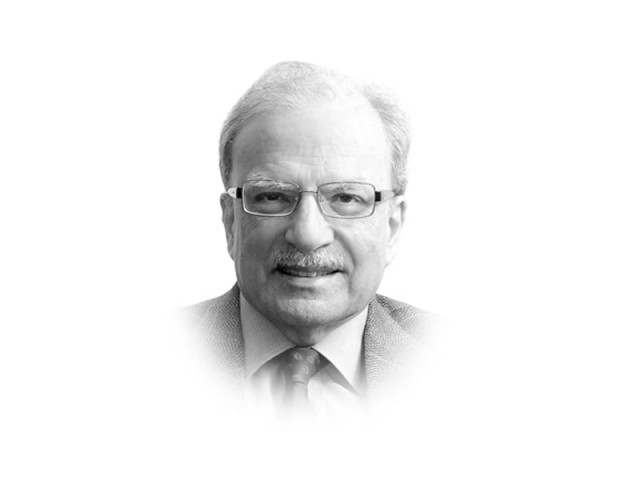Governance and development
The term 'governance' is poorly understood.

The writer is a former caretaker finance minister and served as vice-president at the World Bank
This is not surprising since there was consensus in the country that the Pakistan Peoples Party government that was in office for five years had failed on this score. There was also agreement that the quality of governance had to improve before Pakistan could hope to leave behind the trajectory of slow growth it has been on in recent years and climb on to a higher plane. Even though there is general consensus on these issues — on the importance of good governance and Pakistan’s failure to provide it — the term is poorly understood. We need to answer the following three questions: what is good governance? How is Pakistan faring in this area compared with other emerging economies? What should policymakers do to improve it?
One way of understanding the governance challenges countries such as Pakistan face is through their impact on effectiveness, efficiency, continuity and accountability. These criteria should be applied to the delivery of all services expected of the government by the citizenry. I will take each of these by turn. Effectiveness refers to performance: the ability of the state to deliver services that meet the needs of the people. For instance, if the state cannot provide security as is the case in most areas of Pakistan at this time, it is not being effective.
For efficiency, the work done by the World Bank has some interesting insights. In Pakistan: The Transformative Path, a collection of essays by some of the economists familiar with the Pakistani scene, the World Bank has a good explanation of what is implied by the government’s efficiency. This refers to the “manner in which the state functions, specifically to its ability to mobilise revenue and its ability to use that money in a way that minimises waste and corruption — and maximises results”. Pakistan has performed poorly on all these counts. It has one of the world’s lowest tax-to-GDP ratio; the government does not have enough resources of its own even to pay for its current expenditure let alone for financing development; in planning development, the projects government finances are often brought on the books to hire vehicles for project managers and pay them additional allowances; and the level of corruption has increased over the years. In other words, the government’s development programme does not maximise citizen’s welfare.
Lack of continuity has been a problem. There are several reasons for this. Among them, the lack of understanding of the role the state should play in promoting economic development and managing the economy. The pendulum has swung widely in the past between allowing the private sector a great deal of space to having a highly intrusive state. The former was the case during the years when Muhammad Ayub Khan and Pervez Musharraf governed; later Zulfikar Ali Bhutto brought much of large-scale industry and finance under the control of the state. The swings of the pendulum meant that consistent signals were not sent out to potential investors to make long-term commitment of their capital.
Accountability, the fourth leg of the good governance stool, has been an issue in Pakistan for decades. Of the several attempts made in the past to create an institutional infrastructure, none was able to resist politicisation. When the institutions created for the purpose were given a great deal of power and authority, the governments that were in place found it difficult to resist the temptation not to use them to achieve political ends. Fragmentation of the accountability system is also a problem. While much of the public attention is focused on the National Accountability Bureau, there are several other institutions that make up the system. Other public institutions are the Public Accounts Committee, the Judicial Commission, the Election Commission of Pakistan, Ombudsman institutions, the Federal Investigation Agency and various provincial agencies. For economic governance, there is another set of institutions: the State Bank of Pakistan, the Competition Commission of Pakistan and the Securities and Exchange Commission of Pakistan. The main problem with these institutions is not only government interference but also absence of financial autonomy. Lack of transparency is another issue in the area of accountability.
Given this definition of ‘governance’ — dividing its functions into effectiveness, efficiency, continuity and accountability — what are the public policy choices available to a government interested in improving it? The agenda is vast and must cover a number of fronts. Three areas of action stand out. The first of these is to bring government closer to the people. This will mean strengthening not only provincial governments but also government at the local level. Second, information about what the government does should be readily available. Third, there is urgent need to improve the human and financial capacity of the more critical parts of the large institutional structure that already exists.
Published in The Express Tribune, February 3rd, 2014.
Like Opinion & Editorial on Facebook, follow @ETOpEd on Twitter to receive all updates on all our daily pieces.














COMMENTS
Comments are moderated and generally will be posted if they are on-topic and not abusive.
For more information, please see our Comments FAQ